Some Ukrainian Orthodox fear new government persecution
By Peter Anderson
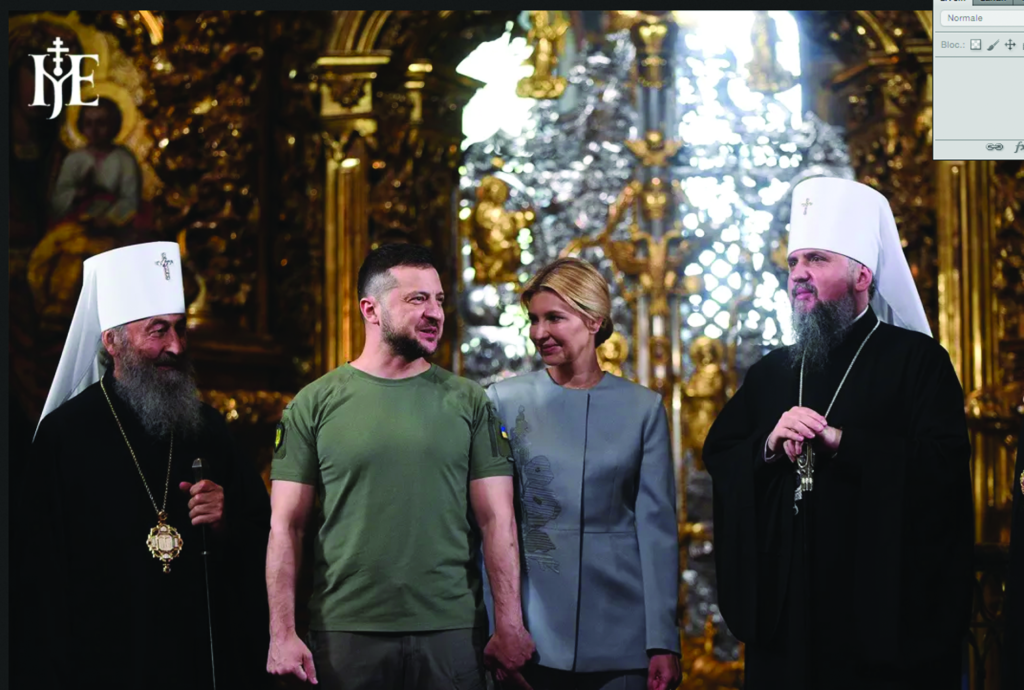
From left to right: Ukrainian leaders pray together: Metropolitan Onufriy, President Volodymyr Zelensky and his wife Olene, and Metropolitan Epifaniy joined a solemn “Prayer for Ukraine” event on the morning of August 24 in Kiev on Independence Day
On December 1, the National Security and Defense Council of Ukraine, chaired by President Volodymyr Zelensky, made a decision (“Decision”) relating to “the activities of religious organizations in the territory of Ukraine in the conditions of the military aggression of the Russian Federation against Ukraine.” The Decision was immediately placed in effect by a decree issued by the president.
The Decision contains a number of sections. In the first section, the Council of Ministers is directed to submit to the Verkhovna Rada (the parliament of Ukraine) for consideration within a two-month period a draft law on prevention of activity in Ukraine of religious organizations affiliated with centers of influence in the Russian Federation in accordance with the norms of international law in the field of freedom of conscience and Ukraine’s obligations in connection with joining the Council of Europe. However, to determine the exact effect of this first section on the Ukrainian Orthodox Church (“UOC”), one must wait to examine the actual terms of the draft law prepared by the Council of Ministers and then, later, the actual terms of any law that may emerge from the Verkhovna Rada as a result.
There are many open questions. For example, will the term “religious organization” be defined in the new law so as to allow the Ukrainian government to seek to limit the activity of a specific diocese, parish, or monastery as opposed to the entire church in Ukraine? Will the term “activity” be defined so as to allow the Ukrainian government to seek to prevent certain specific activities of a religious organization as opposed to seeking to prevent all activities of the religious organization?
The drafters of the new law are also faced with a great challenge. The Decision expressly requires that the draft law be in accordance with the norms of international law in the field of freedom of conscience. To fulfill this mandate, the drafters must be very careful so as not to infringe on protected national and international rights, a difficult and perhaps even impossible task if the drafters attempt to prohibit all activity based on merely a spiritual affiliation with Russia as opposed to actual control from Russia. To apply the new law to the UOC, the Ukrainian government will need to prove that the UOC in fact violated the terms of the new law. This in turn will involve some type of trial and court involvement. The UOC will surely invoke national and international guarantees of freedom of religion and conscience. All of this will take time. One may recall that the 2018 amendment to the law on freedom of conscience and religious organizations required the UOC to rename itself to reflect its affiliation with the Moscow Patriarchate. The challenge to the constitutionality of this amendment is still in the courts four years later.
To the extent that the future new law is applied to all activities of the UOC in Ukraine, the Ukrainian government is faced with the likely impossible task of enforcement. The UOC is not a smaller church such as the Jehovah’s Witnesses (banned in Russia), but a church with approximately 10,000 parishes. The UOC will certainly not stop ministering to its faithful and fade away. How does one prevent priests at approximately 10,000 parishes from celebrating the Liturgy, baptizing children, marrying couples, and caring for the dying? It would require massive imprisonments and coercive police actions on a vast scale. Even then, as shown by the historic example of the Ukrainian Greek Catholic Church, the UOC would not die.
Although one must wait and see on many aspects of the Decision, the Decision has had a number of immediate effects.
The Decision is seen as an effort by Zelensky to ban the UOC. In this regard it provides another ground for the Russian Federation to seek to justify its war in Ukraine — namely, it is protecting Orthodoxy against persecution. The decision can also be perceived by the UOC as an attempt by the Zelensky government to cause Orthodox faithful in Ukraine to join the rival Orthodox Church of Ukraine (“OCU”). This just further embitters the UOC against the OCU and makes an eventual merger of the two churches even more unlikely.
Three parts of the Decision of December 1 relate to the State Service of Ukraine for Ethnopolitics and Freedom of Conscience (“State Service”). The latter is part of the Ministry of Culture and Information Policy. On November 25, Olena Bohdan, who heads the State Service, gave an important interview.
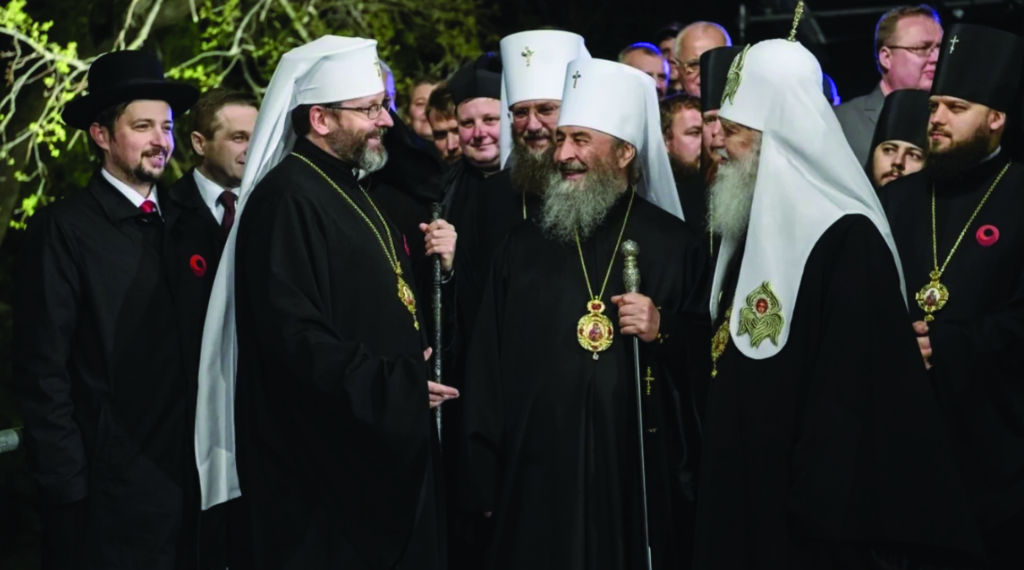
On December 17, 2018, Archbishop Sviatoslav Shevchuk, major archbishop of the Ukrainian Catholic Church (left), met with the then-head of the Russian Orthodox Church in Ukraine, Metropolitan Onufriy (center), and with Patriarch Kirill of Moscow (right)
One of her conclusions was that there is currently no reason to believe that the UOC has a dependent or subordinate relationship with the Moscow Patriarchate. However, she added that she believes that a canonical relationship exists (see the reference in the UOC charter to the 1990 document from Patriarch Alexy) so as to avoid severing canonical relations with other Local Orthodox Churches.
Seeking to capitalize on Bohdan’s acknowledgement of a canonical relationship, the Decision requires the State Service to carry out a religious examination of the charter of the UOC “for the presence of a church-canonical connection with the Moscow Patriarchate and, if necessary, apply the measures provided for by law.” The Decision then requires the Council of Ministers to resolve the issue of functional subordination of structural units of local state administrations to the State Service.
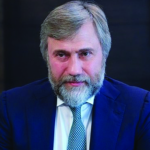
Archdeacon Vadim Novinsky, a Ukrainian billionaire and one of the 10 richest men in Ukraine
In addition, the Decision supported the proposals made by the Security Service of Ukraine for the application of special economic and other restrictive measures and applied sanctions against individuals “according to the appendix.” The appendix lists 10 individuals and the sanctions applicable to each. Five are bishops from Crimea: Metropolitans Lazar and Platon and Bishops Alexy, Kalinnik, and Agathon. Archbishop Arkady is from the occupied area of eastern Ukraine. Two are bishops that have fled to Russia and have been replaced by the UOC: Metropolitan Elisey and Bishop Joseph. However, the two that have created the greatest interest are Metropolitan Pavel (Lebed) and Archdeacon Vadim Novinsky.
Metropolitan Pavel is responsible for the Kyiv-Pechersk Lavra, although the actual head is Metropolitan Onufry. Vadim Novinsky is a billionaire and is one of the 10 richest Ukrainians. Last July he announced his resignation from the Verkhovna Rada where he represented the city of Mariupol. Novinsky has been a huge financial benefactor to the UOC.
On December 2, Novinsky stated on his Facebook page that he is a Ukrainian patriot who has always urged the preservation of Ukrainian statehood and its territorial integrity. He ended his comments by saying: “Considering the sanctions illegal persecution due to religious beliefs and consistent support of the UOC, I will challenge their application in Ukrainian and international courts.”
It will be interesting to see how other Local Orthodox Churches (aside from the Moscow Patriarchate) and the Catholic Church react to the Decision and the future draft and final law.
Peter Anderson is a retired Catholic attorney and an expert on Orthodoxy whose “East-West Watch” appears regularly in Inside the Vatican.

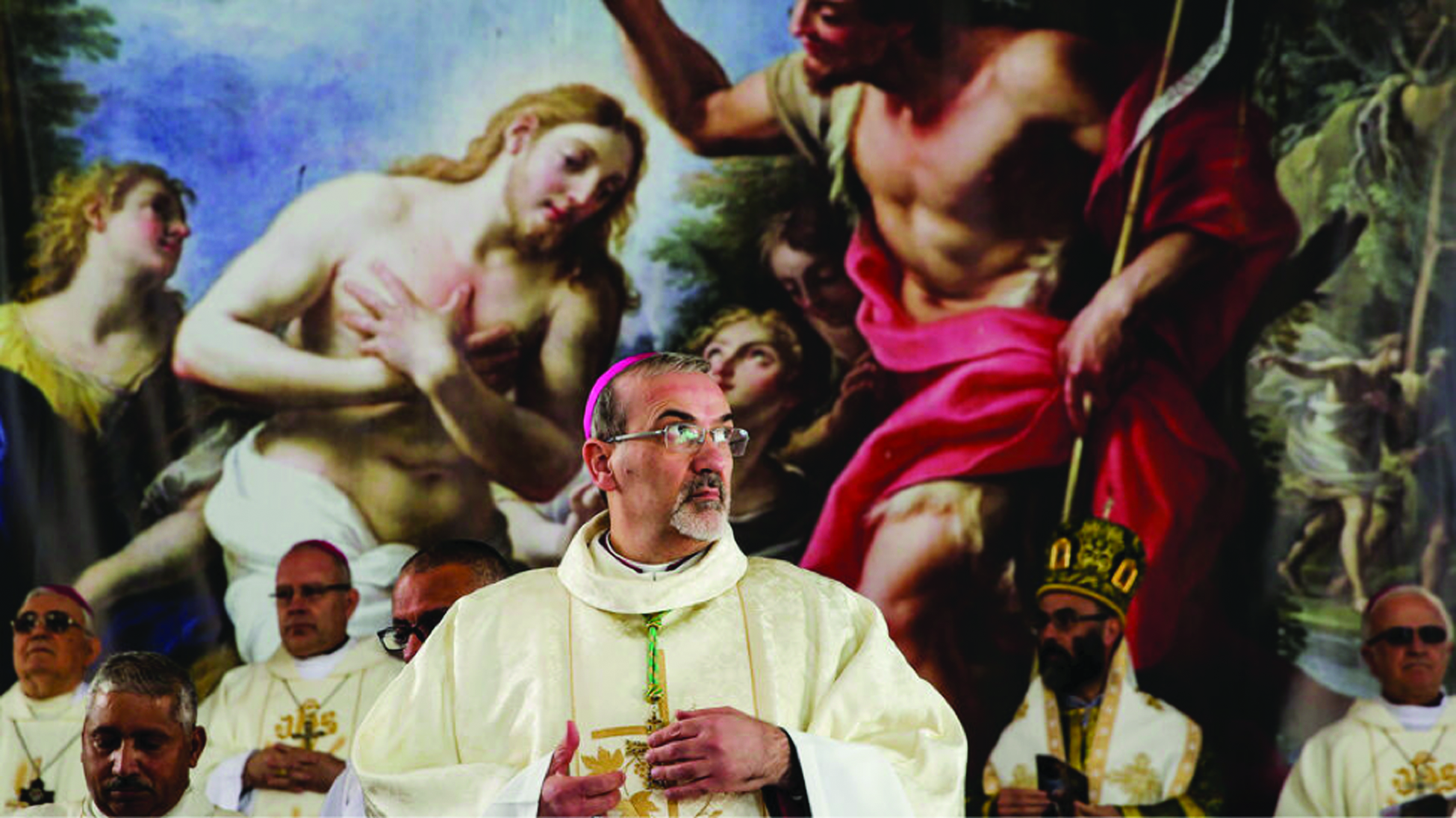
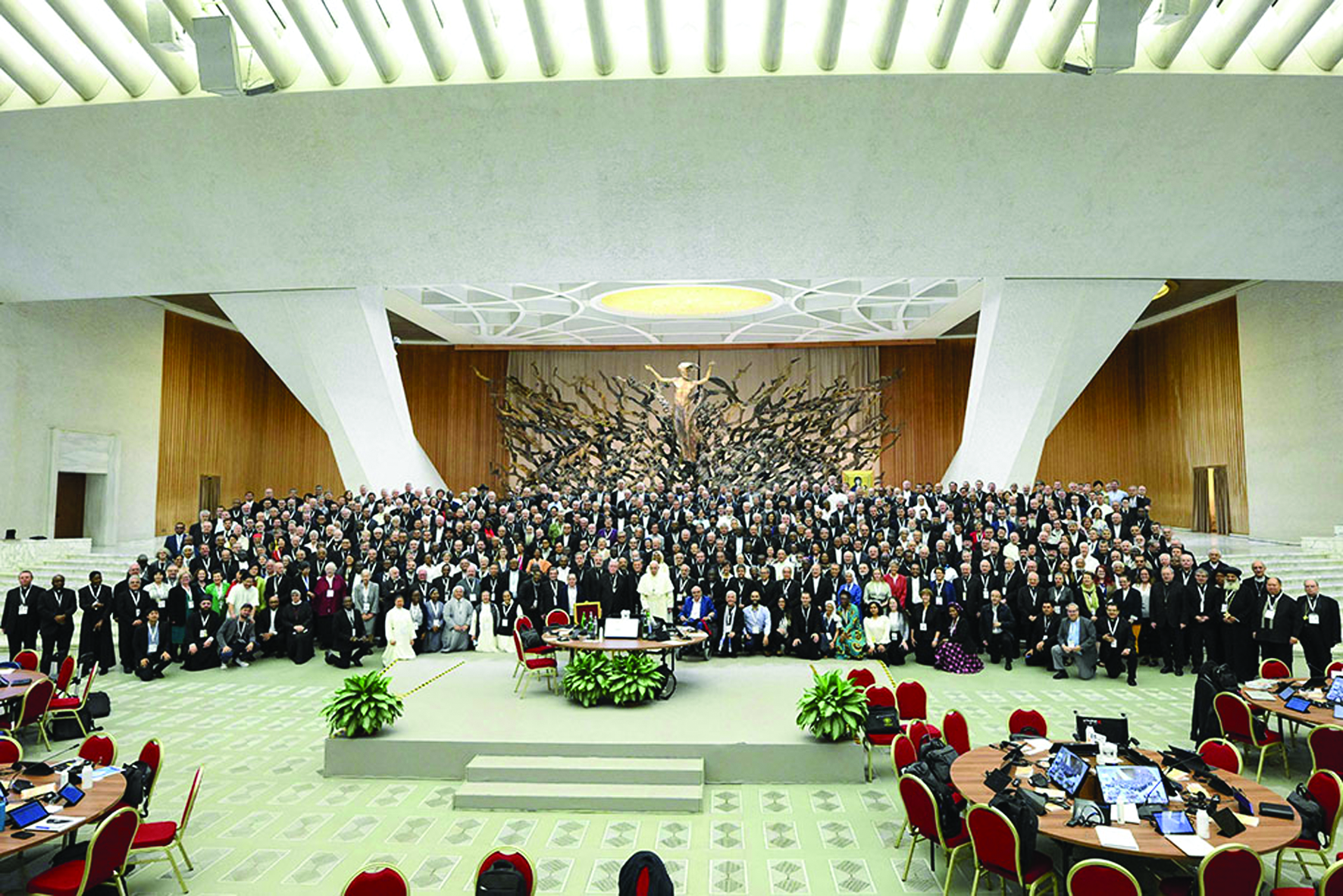
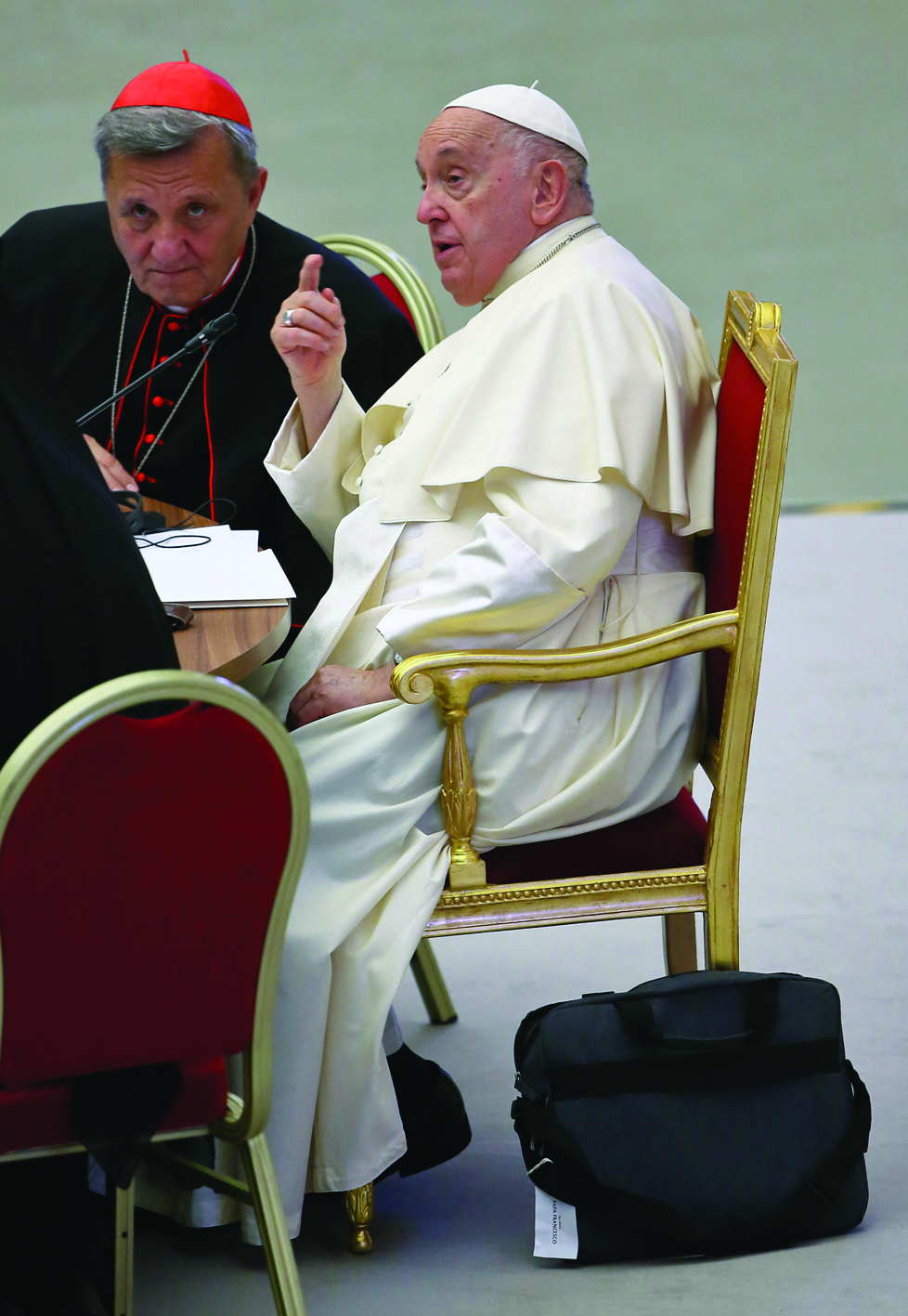
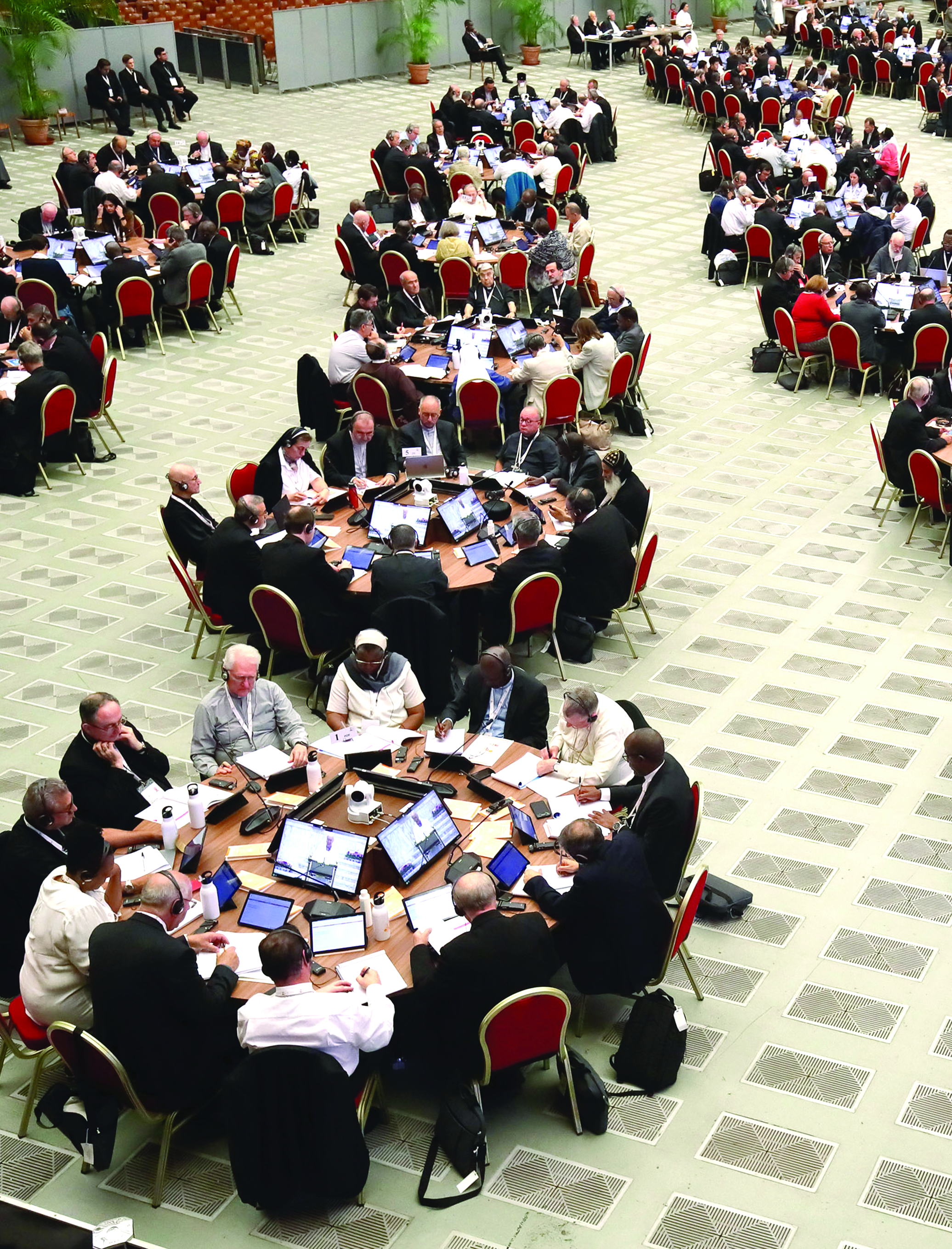
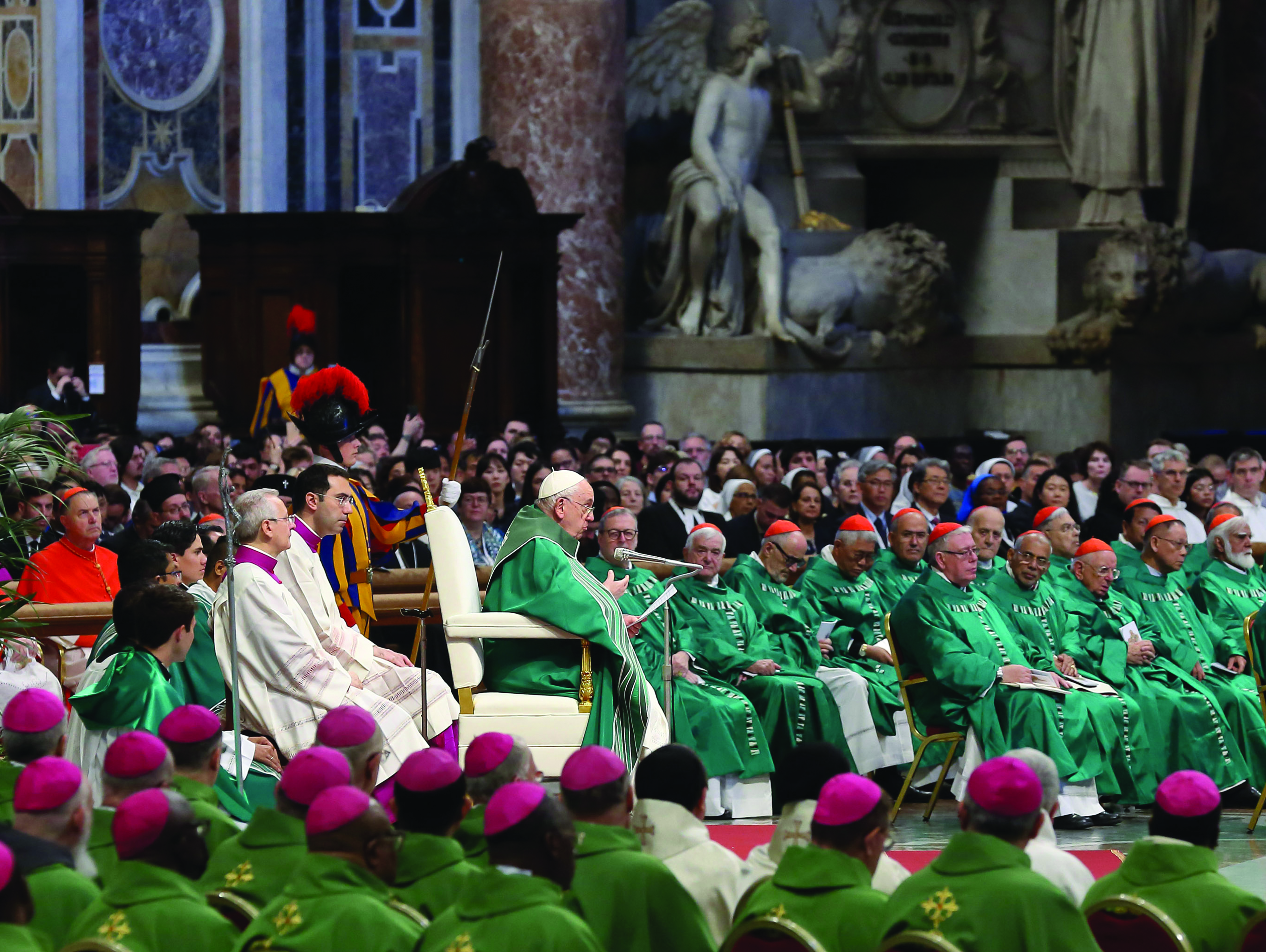
Facebook Comments